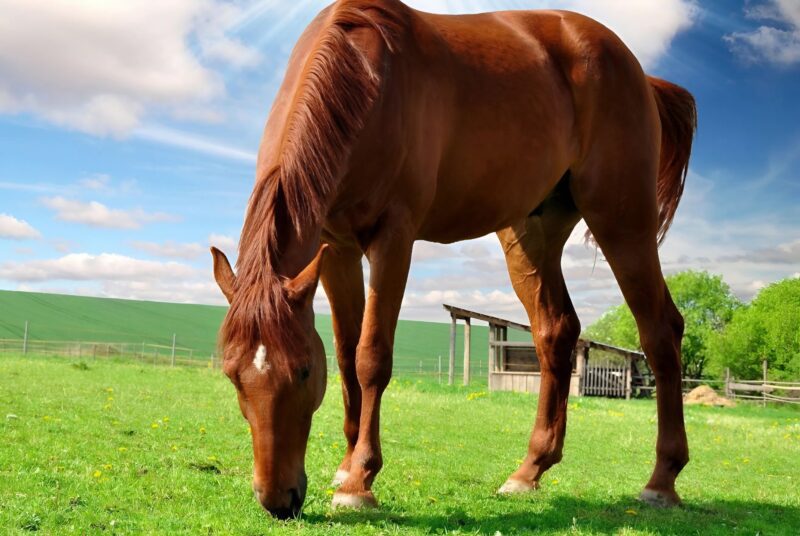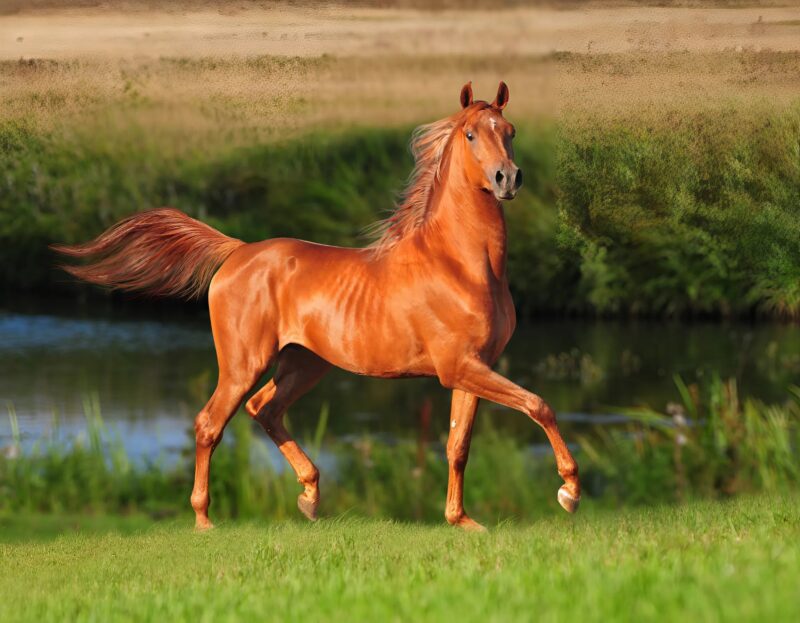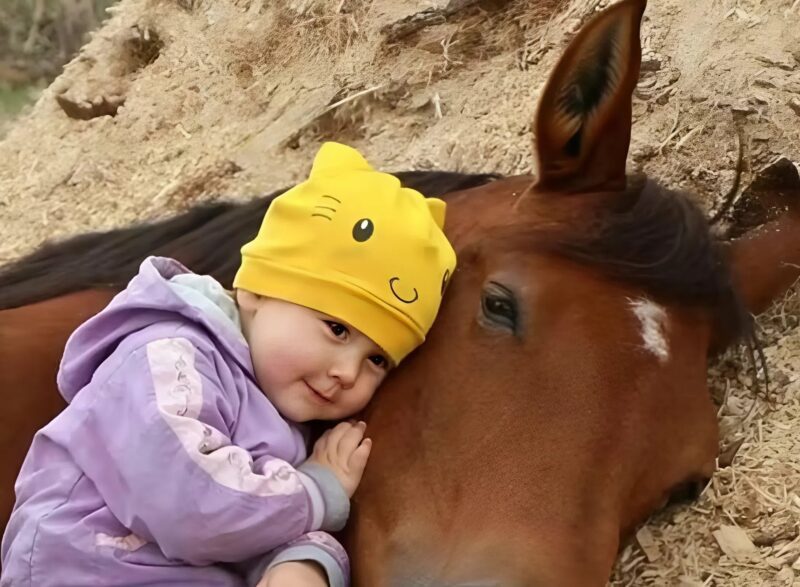When my daughter was just two years old, she found an unlikely friend: the neighbor’s horse.
From the very first time she saw it, her little eyes lit up in a way that only toddlers can manage—half wonder, half disbelief. A creature so big, so towering, yet so gentle. For her, the horse was not simply an animal. It was magic.
Our neighbors, the Turners, had converted a portion of their old barn into a stable. Inside lived Apollo, a massive chestnut stallion with a white blaze running down his face. To most of the adults in our quiet town, Apollo was intimidating. He had the kind of strength that made you pause before walking too close. But to my daughter, he was a dream come true.

She would press her tiny cheek against his neck, giggle when his warm breath tickled her hair, and wrap her little arms around him as if she could actually hold him. Often, she’d curl up in the hay beside him and drift to sleep while he stood nearby, lowering his great head as if watching over her.
We were cautious at first. Horses can be unpredictable. But Apollo behaved as though he understood her fragility. He never snapped, never spooked, never even shifted roughly when she was near. It was as if he knew she was a child, and therefore needed a different kind of care.
For months, this strange friendship bloomed. She would toddle across the yard as soon as she could, calling his name in her little-girl voice, and he would perk up, ears twitching, as though waiting only for her. It warmed our hearts, but sometimes I felt a prickle of unease. Animals, no matter how kind they seem, are still animals. Yet nothing ever happened—until the day our neighbor knocked at our door.
The Visit
It was a late autumn afternoon. The air was crisp, the leaves rattled in little bursts of wind, and the sky was turning toward twilight. I was making soup when I heard the knock.

Mr. Turner stood there, his cap in his hands, his face tight with concern.
“We need to talk,” he said without preamble.
My chest tightened. “Did my daughter wander into your barn again? Did something happen?”
He shook his head slowly. “No. She hasn’t done anything wrong. But this does concern her. You need to take her to the doctor.”
The words struck like ice. “The doctor? Why? What’s wrong with her?”
He glanced back at his barn, then lowered his voice. “It’s about Apollo.”
The Revelation
He stepped inside and sat at our kitchen table, turning his cap over in his hands.
“I wasn’t sure if I should tell you this,” he began. “But I couldn’t live with myself if I kept quiet. Apollo has been… different, lately. I thought it was just age, or temperament. But then the vet came yesterday. He ran some tests. And the results…” He looked up at me, his eyes full of worry. “Apollo has a rare parasite. It doesn’t affect him much, but it can spread to humans. Especially children.”
I froze. The room seemed to tilt.
“What kind of parasite?” I asked.
“Something that attacks the nervous system,” he said grimly. “In adults it’s manageable, sometimes even unnoticed. But in children—it can be serious. The vet insisted we alert anyone who’s had close contact.”
I thought of my daughter, her tiny hands stroking Apollo’s mane, her face pressed against his coat, the way she sometimes fell asleep in the hay beside him. My stomach churned.
“What should we do?”
“Take her in for tests. Immediately. Just to be safe.”
The Hospital
That night we drove to the hospital, our little girl clutching her stuffed rabbit, blissfully unaware of why we were there. The doctors listened, nodded, and quickly ordered blood work. They assured us that cases like this were rare but not impossible.
Waiting for the results was torture. Every laugh, every babbled word from her felt fragile, like it could vanish if the wrong diagnosis came. My mind spiraled through worst-case scenarios: treatments, hospital stays, even losses I couldn’t bring myself to name.
At last the doctor returned.
“She’s clear,” he said. “No infection.”
Relief flooded through me so powerfully that I had to sit down. Tears blurred my vision. My daughter tugged at my sleeve, oblivious, asking for a snack.
But the doctor wasn’t finished. “You must keep her away from the horse until the animal is fully treated. Continued exposure is too risky.”
The Separation
Telling her was harder than I expected. How do you explain to a two-year-old that she can no longer see her best friend? She cried and clung to me, pointing toward the barn, asking for “Polo,” her sweet mispronunciation of Apollo.
For days she would wander to the window, pressing her face against the glass, calling his name. And Apollo would respond, nickering softly, his head hanging over the fence as if he, too, was waiting.
It broke my heart. But boundaries were necessary.
The Turners treated Apollo, though it took weeks of medicine, isolation, and worry. Through it all, my daughter never forgot him. She drew horses on scraps of paper, carried her toy pony everywhere, and whispered “Polo” in her sleep.
The Return
Months later, when the vet declared Apollo free of parasites, we cautiously let her visit again. I half-expected her to hesitate after the long absence. But the moment she saw him, she bolted across the yard, arms outstretched.
Apollo lowered his massive head, nuzzling her gently as though they had never been apart. She giggled, and the sound rang like bells through the chilly winter air.
I stood nearby, tears warming my eyes despite the cold. The bond between them was real, undeniable, something deeper than simple curiosity.
But now I also knew something else: love, even between a child and an animal, must walk hand in hand with vigilance. The world holds wonders, yes, but dangers too. And sometimes they come hidden, behind the soft eyes of a gentle horse.
Epilogue
My daughter still spends time with Apollo, though now under closer watch. We insist on handwashing, on limits, on never falling asleep in the hay. She is older now, and one day she will understand why.
When I see them together—the giant horse and the tiny girl—I realize their friendship was never just about play. It was about trust. It was about innocence meeting gentleness in its purest form.
And though the scare left scars on my heart, I am grateful for it. Because it taught me something vital: that miracles are real, but they are fragile, and it is our duty to guard them.
